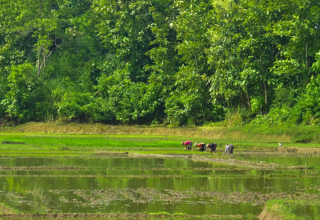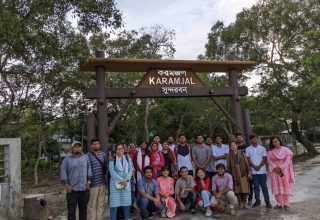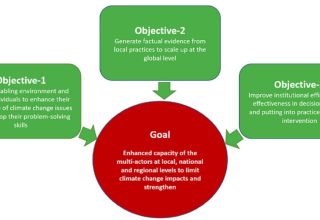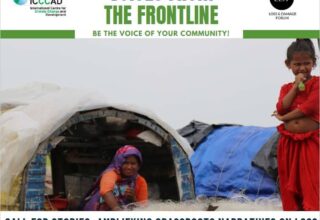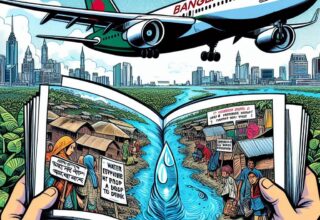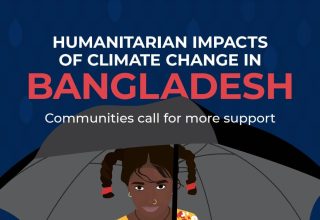“A journey of a thousand miles begins with a single step – Lao Tzu”
We never thought applying to be an ICCCAD Youth Fellow could lead us to a journey of exploration and making lifetime memories. Our fellowship journey kicked off with a residential program at BRAC CDM in Gazipur, Dhaka. We started our first day at the residential workshop with an interesting ice-breaking session which created a friendly environment for learning. The knowledge session began with Sumaiya Binte Selim, Program Coordinator-Gender, ICCCAD who briefed us on what to expect from the next three days. She also enlightened us on the different dimensions of climate change through the lens of gender and youth. We participated in an open discussion to share our views on climate change and the stories we bring together in the room.
On the second day, we delved deeper into the overview of the United Nations Framework Convention on Climate Change Structure (UNFCCC) with S M Saify Iqbal, Program Coordinator-Capacity Building at ICCCAD. We learned about different components of the UNFCCC process to address climate change issues. The learning got interesting when we got divided into two teams representing developing nations and developed nations to take part in a discussion. We were able to put ourselves into different shoes and understand how perspective changes in such complex climate negotiation issues.
“We were able to put ourselves into different shoes and understand how perspective changes in such complex climate negotiation issues”
In the evening, we had an engaging session on Locally Led Adaptation by Afsara Binte Mirza – Research Officer at ICCCAD. After the overview of the concept, we participated in a social inclusion game where we had to take part in role-playing activities. We took on the roles of different persons in a village that got hit by a cyclone. This activity helped us to realize the thinking pattern of the villagers and how can a village build resilience in a climate disaster area by uniting as a community. Afterwards, Nusrat Naushin, Programme Coordinator- Loss & Damage, ICCCAD shed light on the pressing concept of Loss and Damage in the context of climate change. We realized how important it is to realize the sheer impact of climate change across regions and how to address it.
In the evening, Prof. Dr. Saleemul Huq joined us online to share his words of wisdom and answer our queries. I (Fahim) asked him how we can deal with eco-anxiety and keep up hope when the pace of climate change has been accelerating and creating massive loss and damage. He emphasized the importance of solidarity and working together in this common fight. He also shed light on the non-economic loss & damage that should be measured and taken into account.
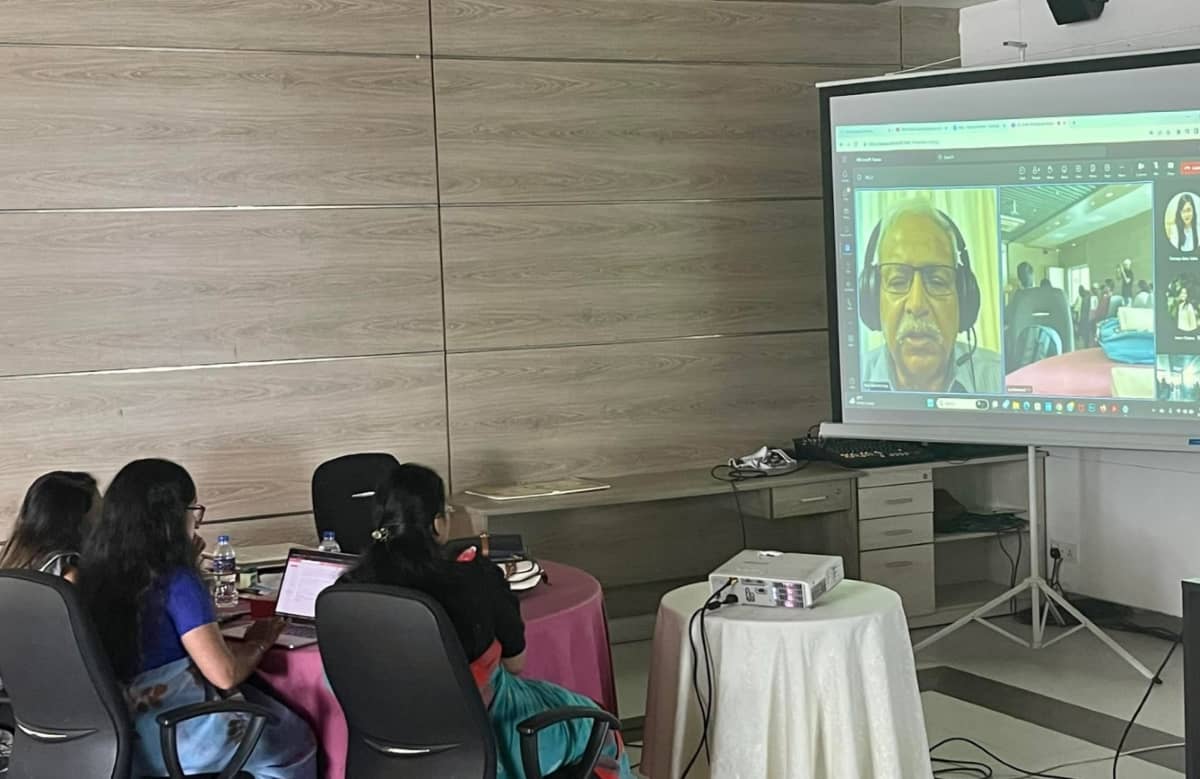
The closing session was facilitated by Juel Mahmud, Project Manager of CAP-RES Project and he emphasized the next steps of the fellowship program. We had a cultural night on our last day and it was filled with stunning performances.
After the residential workshop we had the opportunity to participate in a field trip to Khulna. We visited Mongla, located in the Southern coastal belt of Bangladesh and witnessed various urban development initiatives related to addressing climate change and their impact on informal settlements in the Mongla municipal area.
“After the residential workshop we had the opportunity to participate in a field trip to Khulna”
While exploring Mongla, the persistent challenge of saline intrusion reducing access to drinkable water was highlighted the most. During our visit to Signal Tower Colony, we learned about a project titled ‘Building climate resilient migrant-friendly towns through locally-led adaptation in Bangladesh.’ The project focuses on the specific needs of migrants residing in informal settlements within Mongla. The project underscores the importance of locally-led adaptation, emphasizing the significance of the community’s involvement in designing and implementing solutions.
The second day of our field visit was dedicated to conducting surveys and connecting with the local community. On our third day of the field visit to Paikgasa, we set out to discover more about this ancient and renowned upazila in the Khulna district of Bangladesh. We reached Shanta Ghat, where we visited the climate-vulnerable community and learned about their adaptation strategies. We had the opportunity to witness the shrimp hatchery, a crucial component of the local economy, and the cultivation of salinity-resilient crop variants, cyclone shelters and a water purification facility which plays a vital role in ensuring access to clean and safe drinking water for the community.
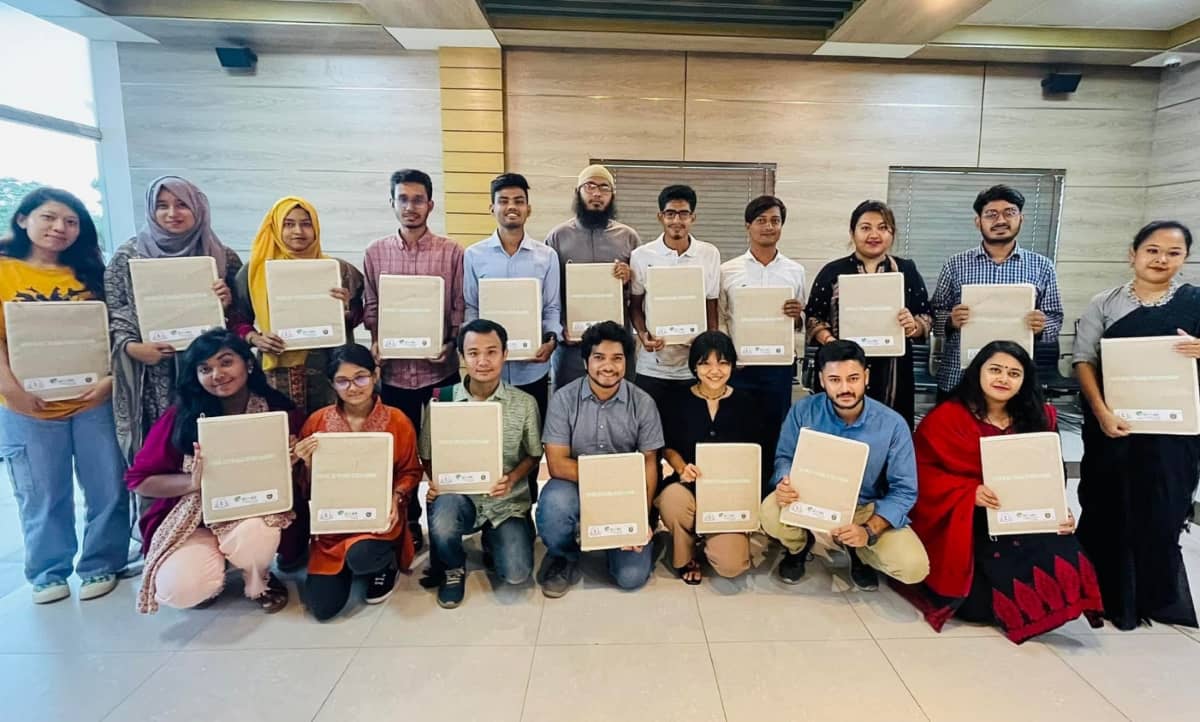
Upon returning from our field visits, we engaged in a group activity to discuss our observations and brainstorm ideas for possible solutions to the challenges faced by the local community. The day concluded with a group presentation, where each team shared its three days’ worth of observations and findings.
“Upon returning from our field visits, we engaged in a group activity to discuss our observations and brainstorm ideas for possible solutions to the challenges faced by the local community”
The learnings from this fellowship reminded us of the late Dr. Huq who said, “You can join the ICCCAD family but cannot leave it.” Now we realize the meaning of his words and how we crafted a long-lasting bond in our fellowship journey that will inspire us to build a climate-resilient future for Bangladesh.
Authors: Md Fahim Hossain is an ICCCAD Youth Fellow-2023 and the Founder of Green Lead; a social enterprise building a global platform for climate action.
Preety Tanchangya is an ICCCAD Youth Fellow-2023 and working in SAABA as a Founder/Project Head.

